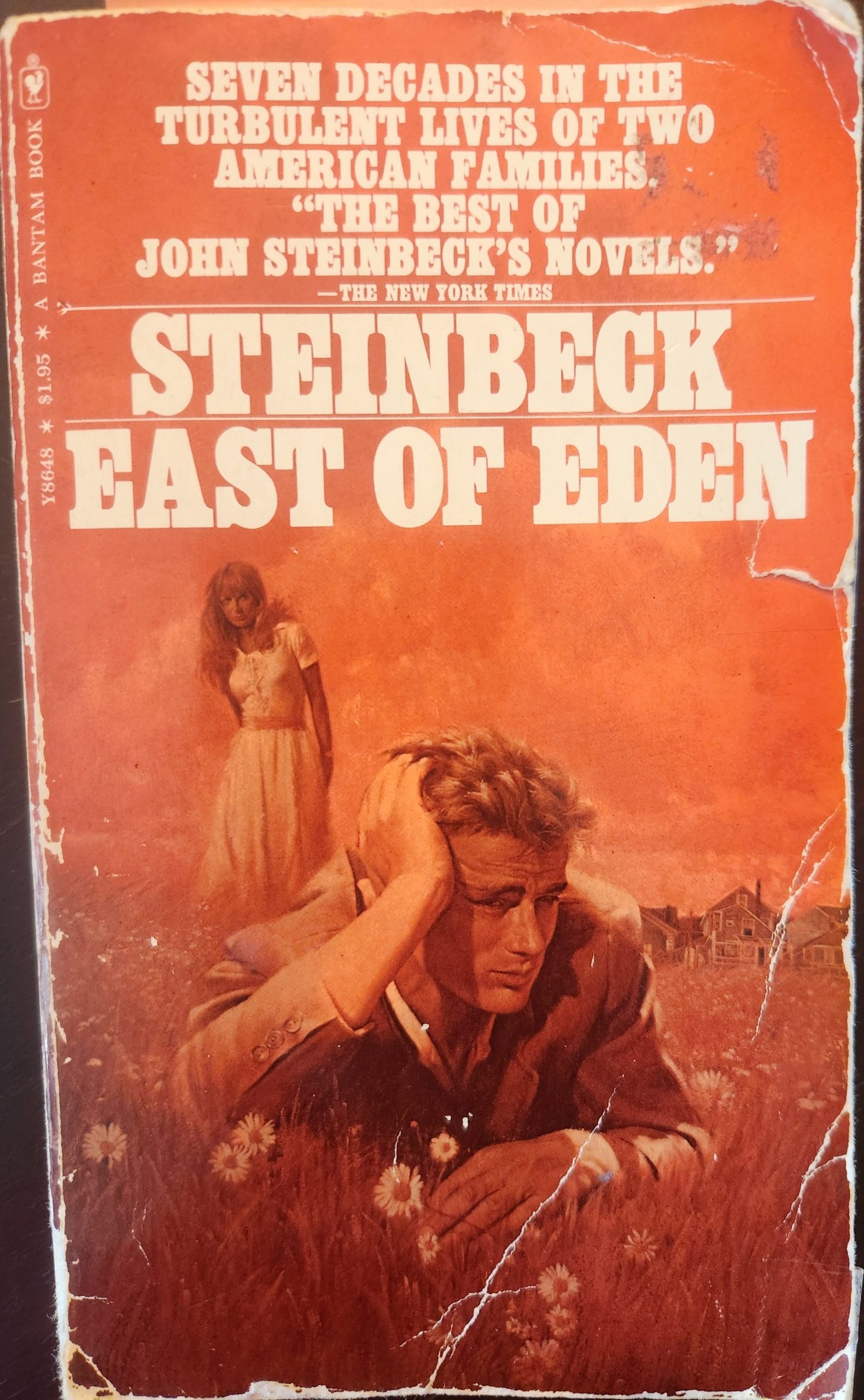Recommended by Serena Sweeney
East of Eden follows the histories of two families, the Trasks and the Hamiltons, from the mid-1800s until the early 1900s, and explores how their lives intertwine and influence each other. Adam Trask and his sons Aron and Cal live on a farm in California’s Salinas Valley. Adam is an innovative business man, who is also a very devoted Christian. The mother of his twin sons was a disturbed and wicked woman who abandoned them soon after giving birth to pursue a life of prostitution, leaving Adam to raise his sons with the help of his Chinese housekeeper, Lee. Aron, Adam’s most beloved son, who is in a serious relationship with Abra Hamilton, takes after his father with his goodness, devotion to work, school and religion, while Cal appears to take after his mother with his anger, resentfulness, inner darkness and cleverness. Cal’s anger disturbs himself so much that he seeks to find the reason for his brooding and troublesome nature, which he believes to be his absent mother. The way in which Cal, however briefly, reintroduces his and Aron’s mother back into their lives, and the boiling tensions, ethical dilemmas, and pressures surrounding the War, will rupture this family structure. Cal has to change himself and overcome his darkness to try to bring his family back together.
Steinbeck’s depiction of each and every figure in this novel is true to human character and what humans have the potential to do, whether those actions are generous and kind, or evil and cruel. Every human struggles now and then with the choice to do the right thing for one reason or the wrong thing for another. Steinbeck’s accounts of these thoughts, emotions, and actions–even from characters that exhibit sociopathic tendencies, or who are just troublemakers–are described in a way that the reader can know and even relate to, which is powerful and unsettling. I was also moved by Steinbeck’s use of imagery, and his humorous voice to illustrate and even anthropomorphize the landscape of California. This reveals how cherished this land was by the Trasks and the Hamiltons, and how essential it was in the foundation of America’s West Coast in general. This novel does not shy away from any human impulse, no matter how perverse or disturbing, from lust and murderous rage to more everyday human emotions such as loneliness, jealousy, hate, discontent, happiness, and love. Further, these two farming families both have histories of suffering from droughts, and the sometimes harsh landscape of California.
Nevertheless, both families remain on the West Coast generation after generation, striving to build their own Edens, which they never seem to obtain entirely. This is due to conflict that the families have with the landscape, troublesome inhabitants of the Valley, or broader national issues like wars. This desire for a paradise on Earth which is never completely satisfied is probably what every human experiences in their life. This novel highlights this paradox, and the human drive to persevere and find love and happiness despite life’s drawbacks.

